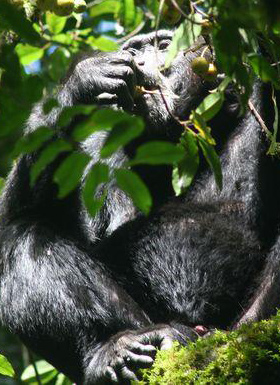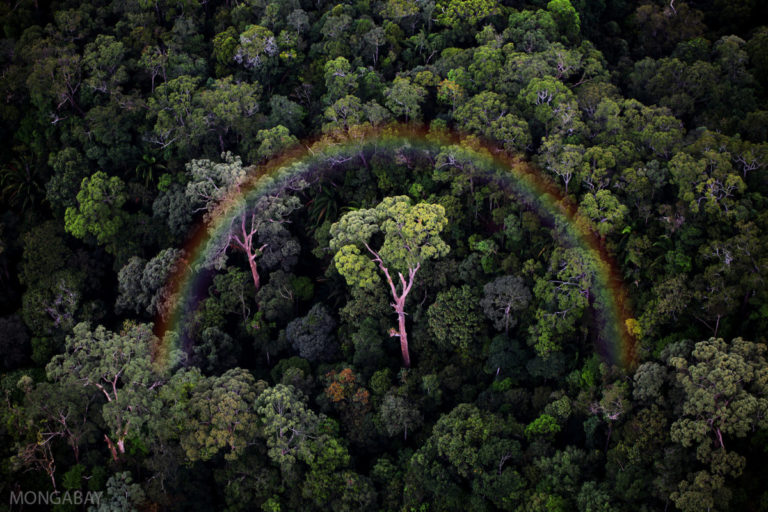Rwanda launches reforestation project to protect chimps, drive ecotourism
Rwanda launches reforestation project to protect chimps, drive ecotourism
mongabay.com
March 18, 2008
Conservationists in Rwanda have launched an ambitious reforestation project that aims to create a forest corridor to link an isolated group of chimpanzees to larger areas of habitat in Nyungwe National Park. The initiative, called the Rwandan National Conservation Park, is backed by the Rwandan government, the Great Ape Trust of Iowa, and Earthpark, a group seeking to build an indoor rainforest in the U.S. Midwest.
“This is an ambitious plan, but the Gishwati chimpanzees are on the brink of extinction. Every newly planted tree increases their chance of survival by providing additional food, shelter and security from people,” said Dr. Benjamin Beck, director of conservation at Great Ape Trust. “If we direct the reforestation southward, there is the additional advantage of bringing them closer to a larger, more secure population in the Nyungwe National Park in Rwanda and the Kibira National Park in Rwanda, with a combined total of about 800 chimpanzees. Once they make contact, the Gishwati chimpanzees will enjoy a wider pool of prospective mates, and thus can avoid inbreeding.”

Wild chimp in Uganda’s Kibale forest. Photo by Rhett A. Butler |
Backers of the Rwanda National Conservation Park say the project will help restore biodiversity and ecosystem services including improving water quality, reducing soil erosion, flooding, and landslides and increasing carbon sequestration. The initiative is expected to generate income for Rwandans through ecotourism, investment opportunity and local employment.
“We must of course find ways to adequately and sustainably compensate people whose agricultural productivity is decreased by reforestation,” said Beck. “One answer will be a new ecotourism destination resulting in employment opportunities as trackers and forest managers.”
Rwanda has been nearly completed stripped of its natural forest cover by decades of subsistence agriculture and cutting of fuelwood, but since the end of the 1994 genocide the country has embarked on a push to promote better land practices, including conservation and reforestation, as well as ecotourism. In the past two years, Rwanda has seen hundreds of millions of dollars in foreign investment for the development of hotels and tourist facilities.
Gishwati is seen as having great potential for nature-oriented tourism. Once the second-largest indigenous forest in Rwanda, Gishwati originally covered 100,000 hectares (250,000 acres) in the early 1900s but by 1994 the forest has been reduced to 600 hectares (1,500 acres). Recent reforestation efforts have increased Gishwati’s forest to 1,000 hectares (2,500 acres). While the reserve is presently home to only 15 chimps, conservationists hope the population will increase as the forest area expands and is linked to the larger Nyungwe National Park.














